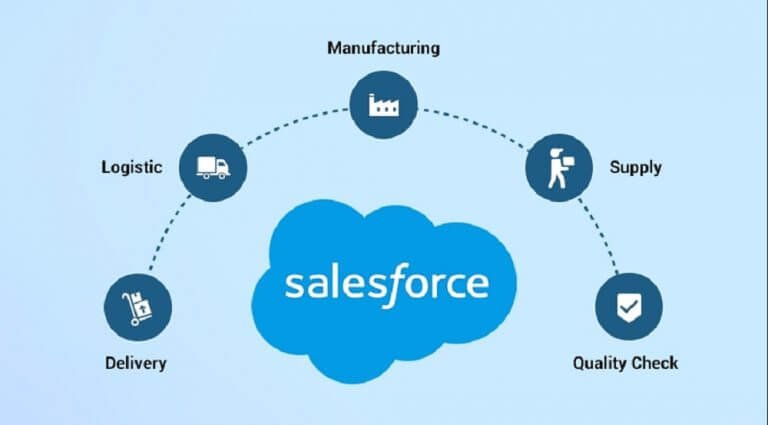In the modern business world, customer relationships are the backbone of success. Managing these relationships efficiently requires sophisticated tools, and Salesforce is one of the most powerful solutions available.
Whether you are a business owner, a marketer, a sales professional, or a tech enthusiast, understanding Salesforce and its capabilities can transform the way you manage sales, marketing, and customer service. In this article, we’ll explore what Salesforce is, its main features, benefits, and what it does in 2020.
What Is Salesforce?
Salesforce is a cloud-based Customer Relationship Management (CRM) platform that helps businesses manage interactions with customers, streamline processes, and improve profitability.
Founded in 1999 by Marc Benioff, Salesforce was among the pioneers of cloud computing for business applications. Its core focus is to provide a centralized platform for sales, customer support, marketing, analytics, and more.
In simple terms, Salesforce helps businesses know their customers better, automate processes, and make data-driven decisions.
Key Features of Salesforce in 2020
Salesforce has grown into a comprehensive platform with multiple tools and modules. Some of the key features include:
1. Sales Cloud
Automates sales processes from lead generation to deal closure
Provides real-time analytics for sales forecasting
Helps sales teams track opportunities and customer interactions
2. Service Cloud
Enhances customer support and engagement
Centralizes service requests, tickets, and feedback
Supports multi-channel customer service including chat, email, and social media
3. Marketing Cloud
Manages digital marketing campaigns efficiently
Personalizes email, social media, and online advertising
Provides analytics for campaign performance and ROI
4. Commerce Cloud
Enables online store management and e-commerce solutions
Supports seamless customer experiences across web, mobile, and social platforms
5. Analytics Cloud (Tableau CRM)
Provides data visualization and business intelligence
Helps teams make data-driven decisions based on real-time insights
6. AppExchange
Salesforce’s app marketplace
Offers thousands of apps and integrations to extend Salesforce functionality
7. Salesforce Platform
Allows developers to build custom apps, workflows, and automation
Supports low-code and no-code solutions for non-technical users
What Salesforce Does for Businesses in 2020
Salesforce’s primary purpose is to help businesses grow by improving customer relationships. In 2020, it provides the following benefits:
1. Centralized Customer Data
Salesforce consolidates all customer interactions, purchases, and communications in one place, making it easier for sales, marketing, and service teams to coordinate.
2. Automation of Repetitive Tasks
Sales teams can automate follow-up emails, lead scoring, and task reminders
Marketing teams can automate campaigns and segmentation
Customer service teams can automate ticket assignment and response tracking
3. Real-Time Insights
With built-in analytics and dashboards, Salesforce allows managers to track KPIs, forecast sales, and identify trends.
4. Improved Customer Engagement
Salesforce helps businesses engage customers at the right time with personalized messages, improving satisfaction and retention.
5. Scalable Solutions
Salesforce grows with your business. Whether you’re a startup or a multinational corporation, the platform can scale according to your needs.
6. Integration Capabilities
Salesforce can integrate with third-party tools, email platforms, social media, ERP systems, and more, creating a connected ecosystem for your business.
Salesforce Industry Applications in 2020
Salesforce is used across multiple industries:
Retail: Manage customer loyalty programs and omnichannel sales
Healthcare: Track patient engagement and automate administrative tasks
Financial Services: Manage client portfolios and compliance workflows
Education: Track student engagement and alumni relationships
Manufacturing: Optimize sales channels and supplier management
Salesforce adapts to any business model and industry, making it a versatile solution in 2020.
Salesforce Advantages Over Other CRMs
Cloud-Based: Accessible from anywhere, reducing IT infrastructure costs
Customizable: Flexible modules for various business needs
Extensive App Ecosystem: Thousands of apps on AppExchange
Advanced Analytics: Real-time insights for smarter decision-making
Strong Community Support: Active user groups, forums, and documentation
Conclusion
Salesforce is more than just a CRM. In 2020, it’s a complete cloud-based platform that supports sales, marketing, customer service, analytics, and application development. Its ability to centralize customer data, automate processes, and provide actionable insights makes it a crucial tool for businesses aiming to increase efficiency, drive growth, and improve customer relationships.
Whether you’re a small business or a global enterprise, Salesforce offers scalable solutions to adapt to the digital demands of 2020 and beyond.




